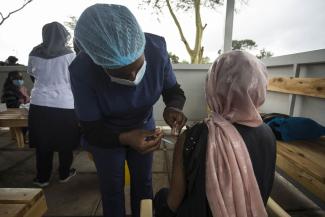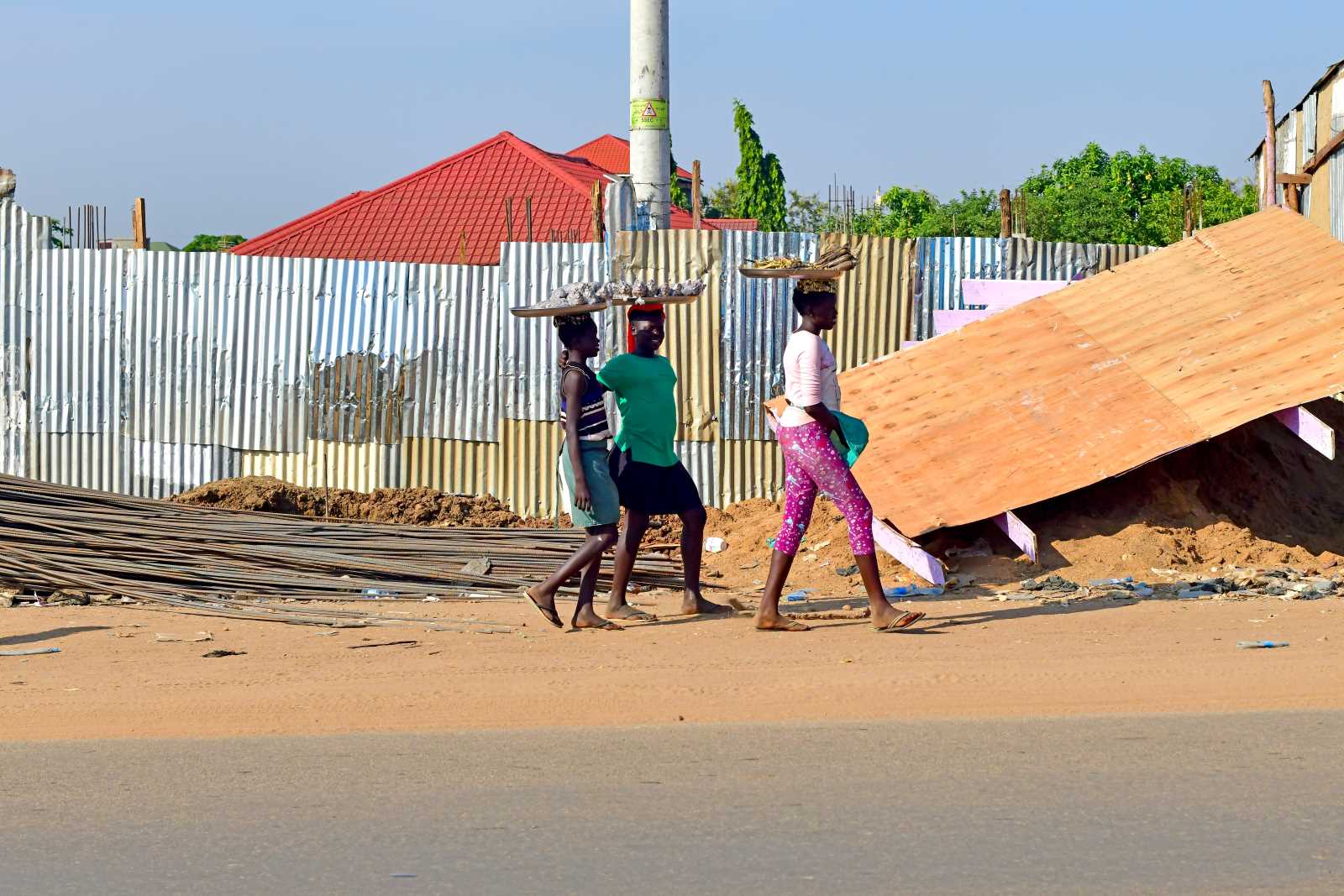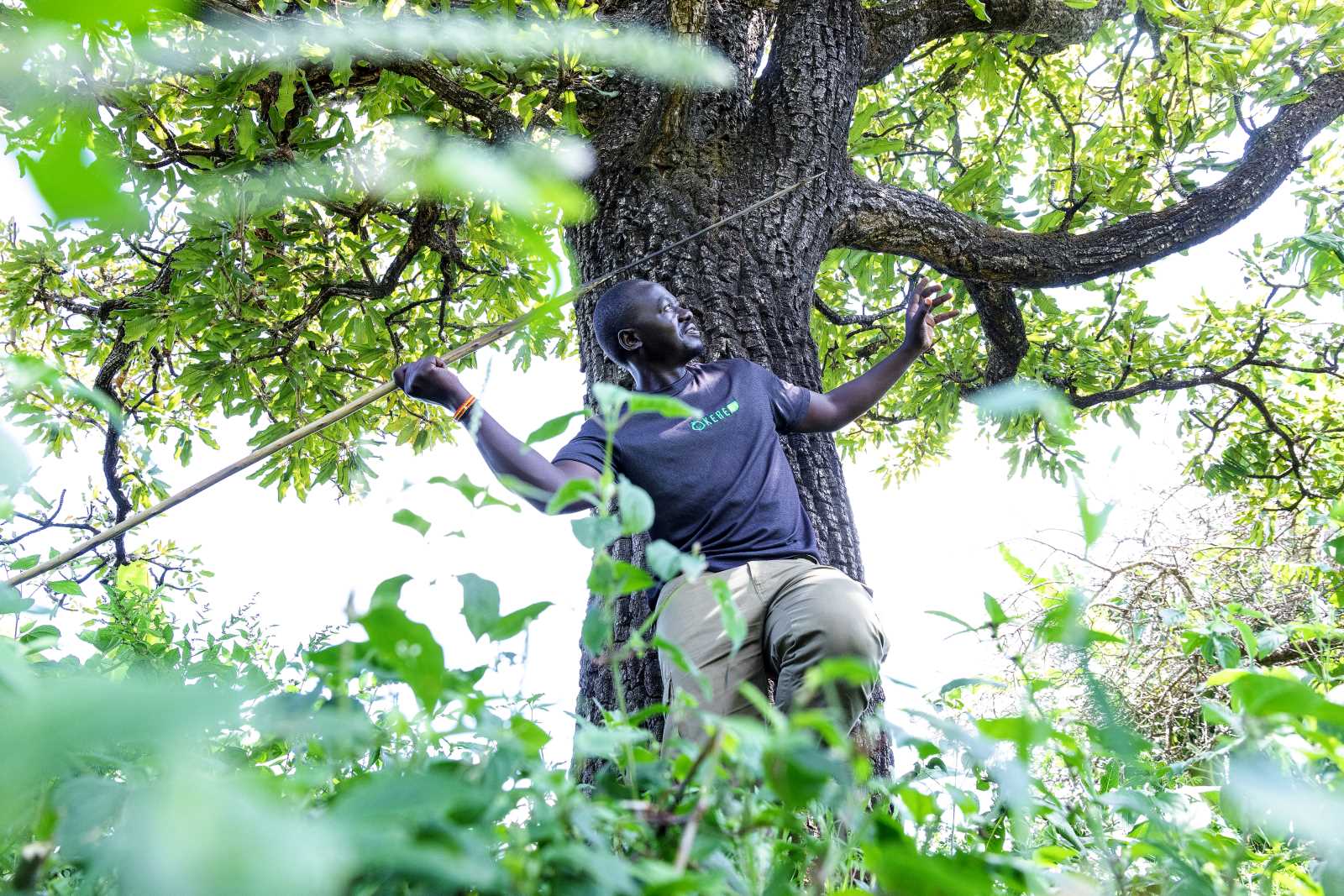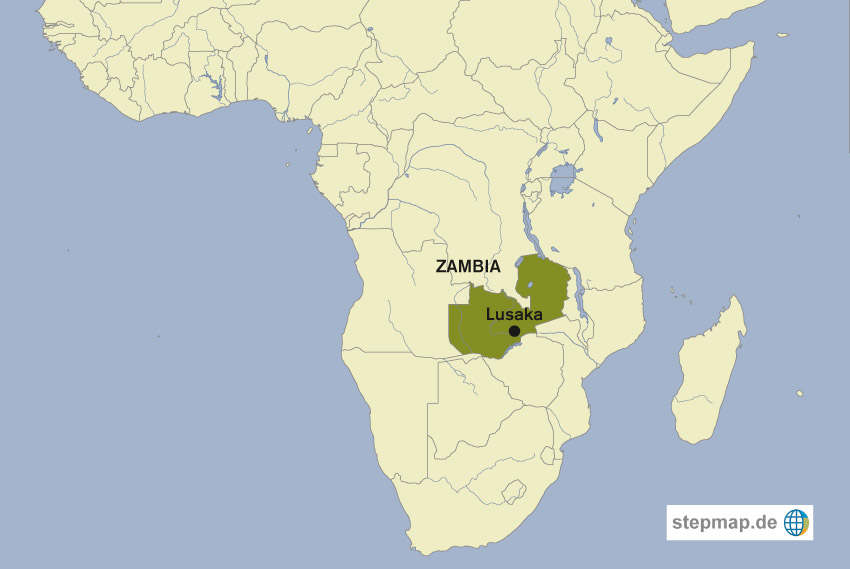Covid-19
International NGO assesses pandemic impacts on human right

In one year, the Covid-19 pandemic has claimed the lives of 2.5 million people and infected at least another 110 million. It has had other impacts as well. In a recent report, Human Rights Watch (HRW) documents the damage in regard to human rights. “Future choices – Charting an equitable exit from the Covid-19 pandemic” sends a message to governments to change course.
The pandemic was used as an excuse by governments to crackdown on free speech and peaceful assembly in more than 90 countries, the authors argue. They document incidents of state agencies targeting journalists, activists and political opposition groups. Authorities also stifled dissent unrelated to the pandemic. There was an increase in internet blackouts and restrictions on access to information in several countries around the world.
Beyond civil liberties
The HRW activists also demand that people who are detained in prisons, jails and immigration centres must be better protected from Covid-19. They are said to frequently being held in over-crowded and sometimes improvised facilities, typically lacking adequate sanitation, hygiene and access to medical care. The HRW report acknowledges that many governments have decongested such spaces by releasing some detainees, but adds that the numbers were generally too low. Moreover, they often excluded political activists.
Freedom of movement has been restricted in general. According to HRW, quarantines, lockdowns and travel bans often made sense, there were cases of excessive enforcement and discrimination.
The HRW report goes far beyond assessing only civil liberties. It considers other human rights as well. For example, it stresses issues such as health care, social protection and labour rights. The authors emphasise the need for global action for vaccine equity by ensuring equal distribution among all nations.
It is necessary to strengthen resilience of health-care systems around the world, the HRW authors state, given that the pandemic has exposed cracks in many places. More must happen to ensure people’s right to health, but actually less is being done, according to the international non-governmental organisation. For example, some governments – including those of Afghanistan, Papua New Guinea or Bangladesh – focused entirely on Covid-19, suspending vaccine programmes for preventable diseases that affect millions of people.
Health workers are highly at risk and need to be better protected since they are engaged at the frontline of the pandemic around the world. Most of them are women, the report points out. It also wants to see better protection for people in nursing homes and other shared spaces where the virus spreads fast. Older persons and people with disabilities are particularly at risk, after all.
The report bemoans that many governments cut back on sexual and reproductive health care. Relying on data from the International Planned Parenthood Federation, a global non-governmental organisation, the authors point out that many family-planning facilities were closed.
Family life
Gender-based violence has increased during the pandemic, HRW points out. There were more reported cases of domestic violence. Lockdown policies put many women and girls in harm’s way when frustrated male relatives turned aggressive. The report says that domestic violence helplines across Pakistan, recorded a 200 % increase in cases from January to March 2020, with the trend worsening when lockdown was implemented. In Italy, Indonesia and Russia, calls to domestic violence helplines are said to have at least doubled during lockdown.
The pandemic disrupted access to education moreover, as schools were closed. According to the HRW report, an estimated 1.4 billion children and teenagers in pre-primary, primary and secondary schools were shut out in 192 countries. Those who lost access to education due to Covid-19 may fall behind their peers in the long run, the human-rights experts warn. Making matters worse, kids may be pressed into child marriage or child labour, diminishing their chances of returning to school. The shift to online and distance learning, moreover, has excluded members of households that lack digital devices and internet connectivity.
The report also notes a housing crisis. As people lost work and income, housing became more insecure and less affordable for millions in both high- and low-income countries.
Working class suffering
The HRW report adds that the working class in particular has felt economic and social impacts of Covid-19. Business closures led to devastating economic hardships. Low-income workers in retail businesses and the informal sector suffered most. The report notes that women were disproportionately likely to lose their jobs. If, however, they could keep working, they could not keep social distance and were especially prone to be infected.
Workers’ rights matter in a pandemic, the authors insist, and the need for guaranteed sick and family leave has become ever more obvious. Proper social-protection systems would ensure that workers who are sick with coronavirus or must take care of sick family members can stay at home. That would also minimise the spread of the virus.
With the restriction on movement and the desire to reduce physical human contact, governments turned to the use of technology. Digital surveillance was enabled through contact tracing apps. These technologies collected and analysed a wide range of personal and sensitive data, from GPS and Bluetooth to cell-site location data. HRW insists that these technologies generally pose serious risks to privacy and human rights.
The Covid-19 pandemic has also impacted conflict and humanitarian emergencies and made it harder for governments and the international community to respond. In South Sudan, restrictions in place to stop the spread of the virus also slowed the implementation of the peace deal and the delivery of aid to populations in need.
According to the report, the Covid-19 pandemic highlights the importance of environmental regulations. Data from Europe and North America shows that the marginalised communities who are especially exposed to pollution also tend to be most affected by Covid-19. The report insists that renewable energy supply must be prioritised and regrets that environmental regulations have been rolled back during the pandemic.
Link
Human Rights Watch (HRW), 2021: Future choices – Charting an equitable exit from the Covid-19 pandemic.
https://www.hrw.org/report/2021/03/04/future-choices/charting-equitable-exit-covid-19-pandemic
Ronald Ssegujja Ssekandi is from Uganda and studies development management at Ruhr University Bochum. The masters’ programme is part of AGEP, the German Association of Post-Graduate Programmes with Special Relevance to Developing Countries. He is currently an intern with D+C/E+Z.
sekandiron@gmail.com













